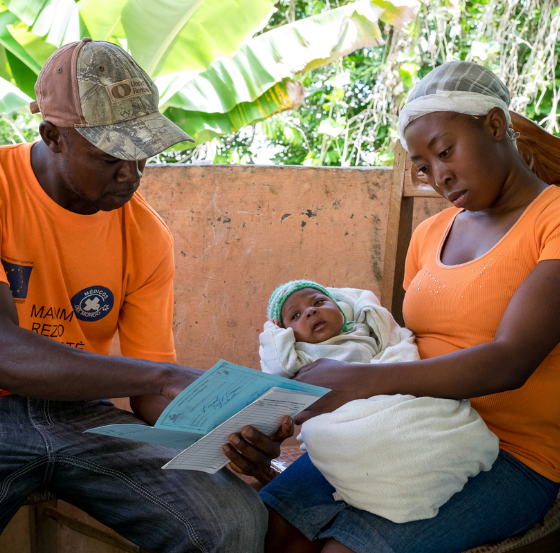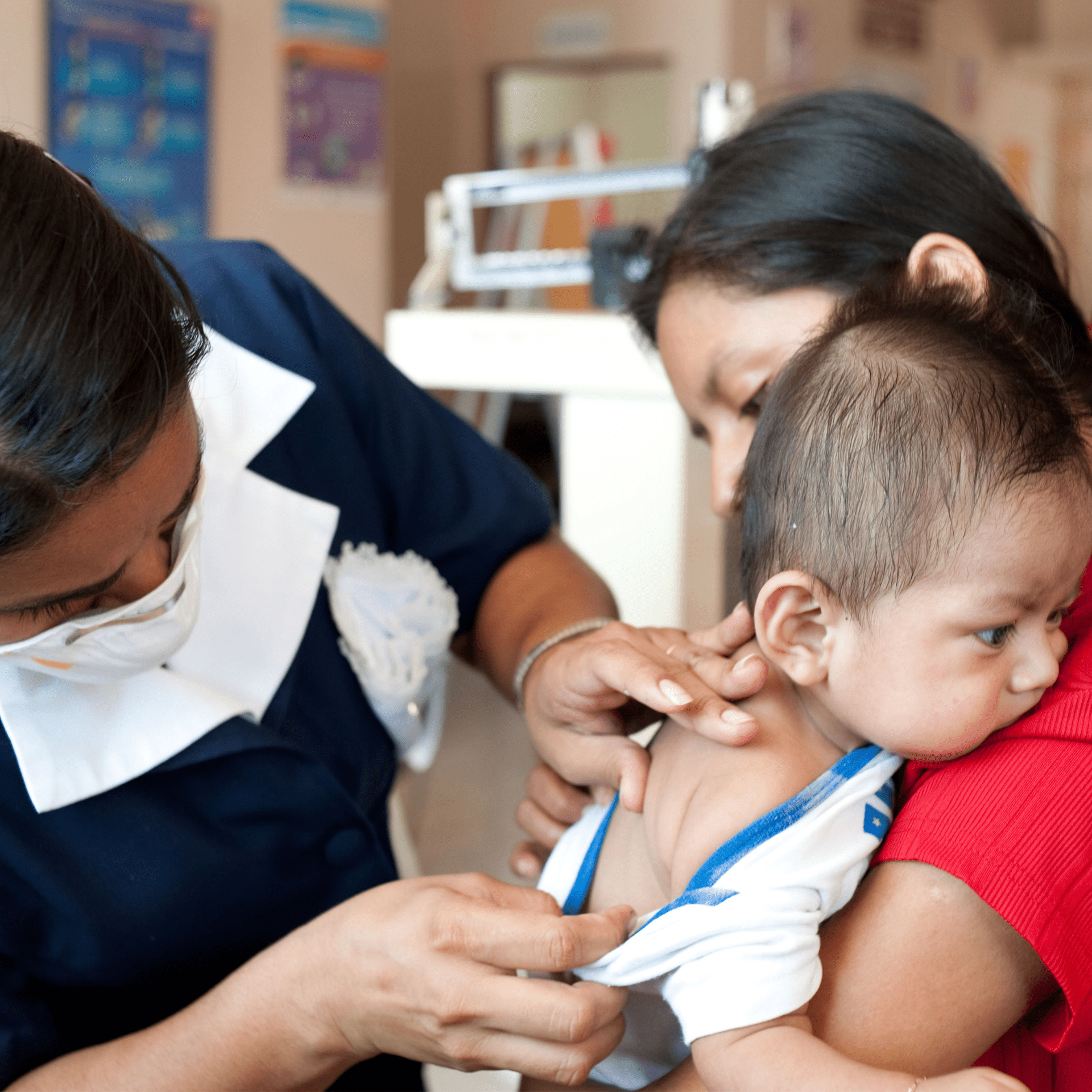
Related documents
In 2024

1,559,258
pregnant women and babies received advice and follow-up care

4,366
healthcare staff trained in improved patient care
5
countries : Bangladesh, Burkina Faso, Madagascar, Nepal, Tanzania
Saving Lives Through Prevention and Training for Healthcare Workers
Every day, around 830 women die worldwide from complications related to pregnancy or childbirth, most of which could easily be prevented. In Bangladesh, Burkina Faso, Madagascar, Nepal, and Tanzania, we are strengthening the knowledge of healthcare workers and communities to improve maternal and child health in a sustainable way.
Prevention is Better Than Healing
In the countries where we work, particularly in rural areas, pregnant women are unaware of the health risks and often do not receive adequate prenatal care. If complications are not detected in time, the lives of mothers and their babies can be put at risk. To combat the main causes of death among women and babies during pregnancy and childbirth, we carry out health education initiatives and actively involve families and local communities.
Similarly, we raise awareness among adolescents about sexual health to prevent early pregnancy and educate schoolchildren and their parents about healthy eating to combat chronic malnutrition.
Improve Access to Healthcare
In Burkina Faso, many children are nicknamed “born on the road” because their mothers did not reach the health center in time and gave birth on the way. In rural areas, health centers are far away and difficult to access due to long distances, poor road conditions, lack of transportation, or high transportation costs.
We hold roundtable discussions with local people and health workers to find solutions and provide financial support to implement them. For example, we help communities build waiting shelters for pregnant women near health centers or repair roads.
Training to Improve the Quality of Care
We offer a range of training courses for local healthcare workers and healthcare managers at the regional, national, and even transnational levels.
The goal: to improve the care of mothers and babies, dialogue between midwives and families, and respect for women and children during care.
We tailor our training courses and delivery methods (face-to-face, online, etc.) to the needs of the population and the context of the countries where we work. To ensure long-lasting results, these training courses are co-designed with universities, NGOs, and the Ministry of Health of the countries concerned, as well as international organizations such as the World Health Organization.
What Sets us Apart
- We empower communities by giving pregnant women the keys to understanding health risks and making informed decisions
- Our projects are designed to last after we leave: we work closely with civil society actors and national health authorities and encourage the active participation of local communities.
- Our projects have a broad impact: by training both regional and local health personnel trainers and national health ministry officials, we are transforming health practices on a large scale.
- Our approach, which promotes active community involvement, is integrated by governments into their national health policies.
Nazia 18 years old, Bangladesh
I learned to recognize the warning signs to look out for during my pregnancy. I also received information about preparing for childbirth and emergencies (related to birth).
Our Areas of Expertise
Health Education
Maternal, neonatal and infant health, sexual and reproductive health, cognitive development in children and malnutrition: our health education initiatives provide people with the information they need to stay healthy and make informed decisions about their health.
Read moreHealthcare Training
We offer various training courses to local healthcare staff and healthcare managers to improve the care provided to pregnant women, new mothers, and babies, with the aim of increasing patient satisfaction with the care they receive.
Read more
Involvement of Local Populations
To identify priorities at the local level, Enfants du Monde uses participatory community assessment involving all health stakeholders and communities.
Read more
Influence on National Policies
Enfants du Monde works with governments and NGOs to incorporate our recommendations into national health policies and strategies for the long term.
Read moreCOVID-19
During the COVID-19 crisis, we carried out various information campaigns for the general public and training for healthcare workers to help them protect themselves. We also distributed protective equipment.
Read more
My Donation Can Make a Real Difference
I could provide birth-preparation sessions to 11 pregnant women in Madagascar.
I could support health education for 500 expecting parents in Bangladesh.
I could help two nurses in Nepal receive professional training to deliver respectful maternal care.







